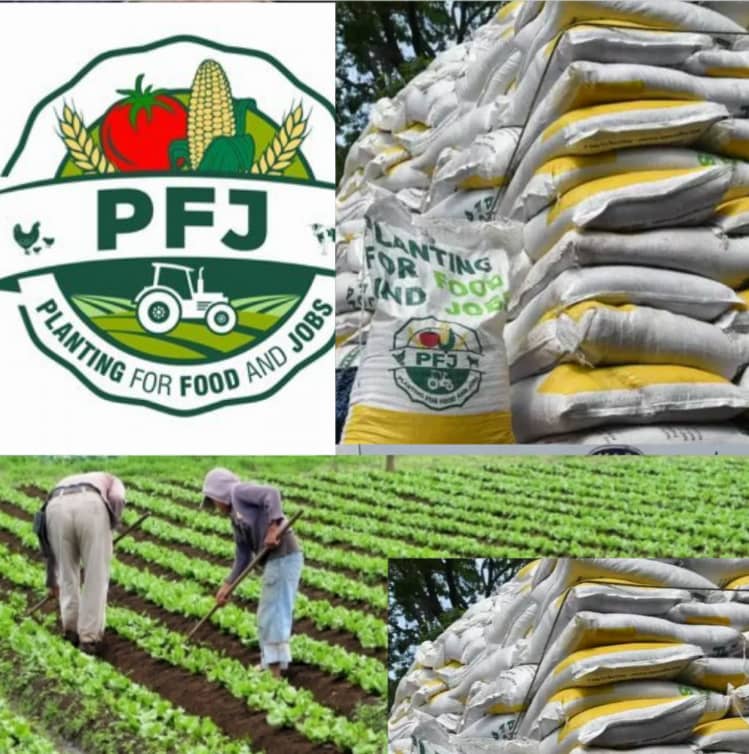Ghana’s “Planting for Food and Jobs” (PFJ) initiative, launched in 2017, aims to revolutionize the agricultural sector by increasing food production, creating jobs, and reducing food imports. This flagship program of the Ministry of Food and Agriculture (MoFA) targets smallholder farmers by providing them with subsidized inputs such as seeds and fertilizers, as well as technical support and market linkages. Given the current economic challenges facing Ghana, it is crucial to assess the progress of the PFJ initiative and identify immediate actions to enhance its effectiveness.
Economic Context
Ghana’s economy is experiencing significant challenges characterized by high inflation, rising public debt, and currency depreciation. According to recent reports, inflation has surged above 40%, driven by increasing food and fuel prices. The Ghanaian cedi has depreciated sharply against major currencies, exacerbating the cost of imports and affecting the purchasing power of citizens. The agricultural sector, while pivotal, has been strained by these economic pressures, necessitating urgent and strategic interventions.
Progress and Achievements of PFJ
Since its inception, the PFJ initiative has made notable strides in boosting agricultural productivity and improving food security. Key achievements include:
- Increased Crop Yields: There has been a significant increase in the production of key staples such as maize, rice, and soybeans. This has contributed to improved food availability and reduced dependency on imports.
- Job Creation: The initiative has generated numerous jobs, particularly for the youth and rural populations, helping to address unemployment issues.
- Input Subsidies and Support: Over 1.5 million farmers have benefited from subsidized seeds and fertilizers, enhancing their capacity to produce more and better-quality crops.
- Extension Services: Enhanced agricultural extension services have provided farmers with vital knowledge and techniques to improve their farming practices.
Challenges and Limitations
Despite these successes, several challenges hinder the full realization of PFJ’s goals:
- Logistical and Distribution Issues: Delays and inefficiencies in the distribution of inputs have affected timely planting and crop productivity.
- Financing Constraints: Limited access to credit for smallholder farmers has restricted their ability to fully leverage the benefits of the initiative.
- Market Access: Farmers often struggle to access reliable and profitable markets for their produce, leading to post-harvest losses and reduced incomes.
- Climate Change: Unpredictable weather patterns and inadequate irrigation infrastructure continue to pose risks to crop yields.
Strategic Recommendations for Maximum Impact
To ensure the PFJ initiative achieves its maximum potential impact, the following immediate actions are recommended:
- Enhance Input Distribution Systems: Streamline the logistics and distribution mechanisms to ensure timely and efficient delivery of inputs to farmers. Implement digital tracking systems to monitor and manage the distribution process more effectively.
- Improve Access to Finance: Expand access to affordable credit facilities for farmers. Partner with financial institutions to develop tailored loan products and provide financial literacy training to farmers.
- Strengthen Market Linkages: Develop robust market infrastructure and promote contract farming to ensure that farmers have reliable and profitable outlets for their produce. Encourage the establishment of cooperatives to enhance bargaining power and market access.
- Invest in Irrigation and Climate Resilience: Increase investment in irrigation infrastructure to reduce dependence on rainfall. Promote climate-smart agriculture practices to mitigate the impacts of climate change and improve crop resilience.
- Capacity Building and Extension Services: Continue to strengthen agricultural extension services by training more extension officers and utilizing technology for remote advisory services. Provide continuous education and capacity-building programs for farmers on best practices and new technologies.
- Policy and Institutional Support: Ensure consistent and supportive agricultural policies that align with the goals of the PFJ initiative. Strengthen institutional frameworks to facilitate better coordination and implementation of agricultural programs.
Conclusion
The Planting for Food and Jobs initiative has the potential to significantly transform Ghana’s agricultural sector, contributing to food security, job creation, and economic stability. However, to achieve maximum impact, it is essential to address the logistical, financial, and market-related challenges that currently impede its success. By implementing strategic recommendations and fostering a supportive policy environment, Ghana can ensure that the PFJ initiative not only meets its targets but also becomes a sustainable model for agricultural development in the region.

